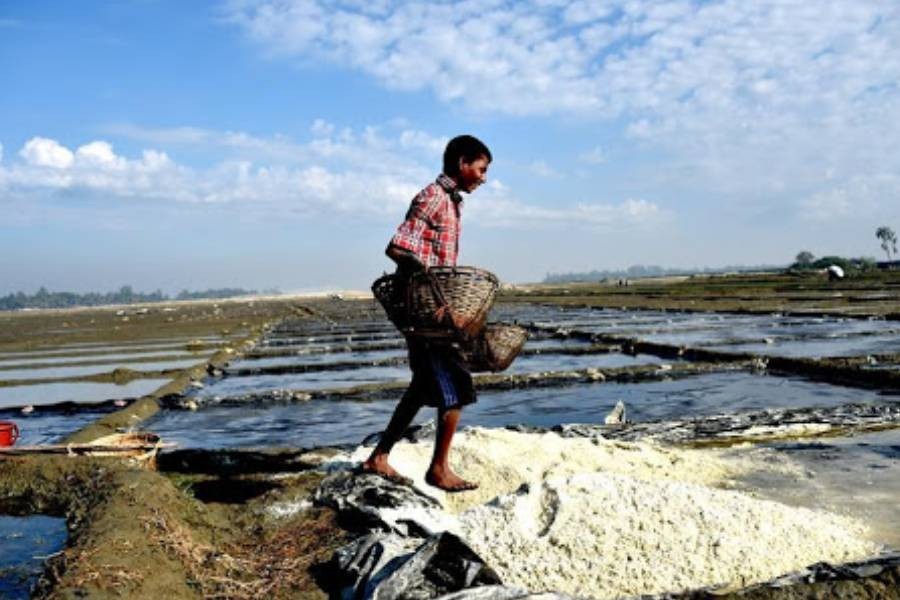The industries ministry has proposed rationalizing the existing tax incidence on the import of edible salt, disodium sulphate and sodium sulphate to help protect the salt industry and producers.
The government imposes 91.3 per cent tax incidence on the import of edible salt. There has an option to import such salt as industrial raw material on the condition, said an industries ministry source.
According to the existing salt policy-2016, import of such item has remained suspended for the protection of the country's salt industry and sufficient production of salt locally.
On the other hand, the government imposes 44.53 per cent and 38.47 per cent tax incidences on the import of disodium sulphate and sodium sulphate respectively, he added.
To this effect, the ministry had requested the National Board of Revenue (NBR) to take required steps in this regard.
In the last couple of years, some importers had been importing disodium sulphate and sodium sulphate as industrial raw material through false declaration. Sodium chloride is the main ingredient of disodium sulphate and sodium sulphate and they look alike.
A trend in importing disodium sulphate and sodium sulphate was increasing through various ways due to lower total tax incidence than edible salt, according to the ministry documents.
Earlier, local salt was being used as industrial raw material. Presently, disodium sulphate and sodium sulphate were being used as industrial raw materials due to lower prices of the items, the documents mentioned.
Currently, the country's salt refineries had reduced purchasing local salt from its producers. For this, locally-produced salt remained unsold, affecting local producers.
The ministry fears that the producers would be discouraged to produce salt locally if the disodium sulphate and sodium sulphate are used as industrial raw material instead of locally-produced salt. It would also create salt crisis in the country, a high official of the ministry said.


